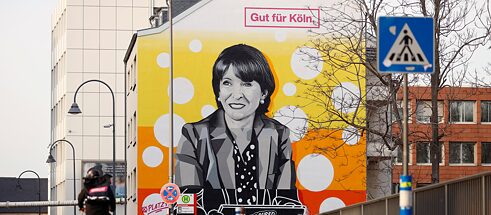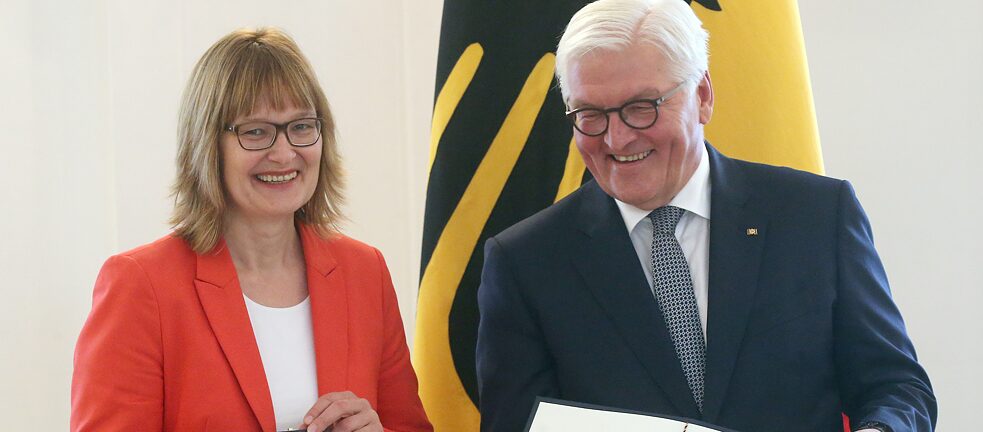Women in Local Politics
Women, get into politics!

Whether in the Bundestag or in city and town halls, women are underrepresented in German politics. We explore the reasons and possible solutions.
Christiane Horsch is a rarity. So is Heike Ollech. Just like Henriette Reker. Women who have made it to the top of local politics in Germany, who hold high offices in a township or city, or, like the three women above, even serve as mayors, are still rather uncommon. A 2020 study by the European Academy for Women in Politics and Business Berlin (EAF Berlin) found that just nine percent of Germany’s mayors are female. This number is even lower in large cities, where only 8.2 percent of city halls are headed by women, as the Heinrich Böll Foundation’s “Gender Ranking of German Cities” showed in 2017.
“The smaller the community, the higher the proportion of women,” the authors of the EAF study, Kathrin Mahler Walther and Helga Lukoschat, note. In Eastern Germany, the proportion of women is slightly higher, but has consistently shrunk in recent years. The researchers assess that it has “levelled off at the lower level of the old federal states.”
Lukoschat calls these results “worrying”. She regularly points out these shortcomings in political and business circles and calls for the role of women to be strengthened, and not just at the local level, where female politicians hold about a quarter of positions, but also in the Bundestag, where women continue to be underrepresented. In the parliament elected in 2017, for example, just under 31 percent of all MPs were female – which corresponds to a loss of seven percentage points compared to the previous legislative period. “So not only are we seeing stagnation here; we are actually backsliding,” she says.
Politics can be a hostile environment for women
Mayor of the town of Schweich on the Mosel River since 2012, Christiane Horsch sees a number of reasons women do not enter politics at the local level. She identifies traditional gender role models as one continuing factor: “It’s still really difficult for women to reconcile work and family life.” She notes that a voluntary role in local affairs – which is often a stepping stone to political office in smaller communities in particular – requires “considerable extra time” that women are less likely to be able to spare than men.
But women’s underrepresentation may also be due to the fact that women face more hurdles in political office – and the path to getting there – than their male counterparts. The EAF study confirmed this hypothesis: around half of the female mayors interviewed about their experience reported facing antagonism as a candidate compared to just 37 percent of men surveyed. Just under a third said they perceived push-back on account of their gender, and 13 percent were even subjected to sexual harassment. At a meeting of female state politicians, mayor of Gunningen in southern Baden Heike Ollech, told the audience she had to listen to things “there is no way you can vote for a chick” during her campaign.
 EAF Executive Director and co-author of the EAF study on women in politics, Kathrin Mahler-Walther, being presented the Federal Cross of Merit in 2019 for her civic engagement in Eastern Germany.
| Photo (detail): ©picture alliance/dpa/Wolfgang Kumm
EAF Executive Director and co-author of the EAF study on women in politics, Kathrin Mahler-Walther, being presented the Federal Cross of Merit in 2019 for her civic engagement in Eastern Germany.
| Photo (detail): ©picture alliance/dpa/Wolfgang Kumm
Networks and parity laws for more women in politics
So women need to join forces and have each other’s backs. More and more networks and association are being formed to advance women at the state and local levels in particular. Together with other female comrades-in-arms, Christiane Horsch founded the Netzwerk kommunale Führungsfrauen (Network of Municipal Women Leaders), which is affiliated with the Association of Municipalities and Towns of Rhineland-Palatinate. She wants to promote young female politicians and raise the profile of female role models. “Helping to shape life locally in the community is a wonderful and challenging task,” she says. “We should also be more proactive attracting young women in particular.” Meanwhile, in Cologne, Mayor Henriette Reker is working to draw more women to politics by operating mentoring programmes in the city administration and encouraging women to take on leadership positions with the Führen in Teilzeit (Leading Part-Time) project.
In Swabia too, local politicians are active their own female network “BoRa”, dedicated to strengthening the participation of women in politics. Most recently the members made a video clip to draw attention to the lack of parity in parliaments. Their demand is very clear: “Hand over half the power to women. Now!”
The women of Helene Weber College, an EAF Berlin initiative co-founded by Helga Lukoschat, see this as the best and perhaps the only way to achieve gender equality in politics. They are also working on bolstering young female politicians, offering seminars and practicing soft skills and media work with them. Still, they argue that, “equality in politics is only feasible with binding legal regulations.”
At least party-political activities in this area have recently gained momentum in a number of German states. Brandenburg and Thuringia were the first states to pass parity laws. But the Erfurt law, which was supposed to enact quotas to ensure a balance of women and men in the state parliament, was declared unconstitutional in the summer of 2020 and the same fate befell the Brandenburg initiative in October.
An election review complaint filed by ten women against the 2017 Bundestag election results and the unequal – by gender – distribution of seats was also recently rejected by the Federal Constitutional Court. One reason the court gave was that a parliament did not necessarily have to represent the electorate. Be that as it may, the plaintiffs’ lawyer is not willing to give up so easily. She has not ruled out filing another complaint after the next national election.